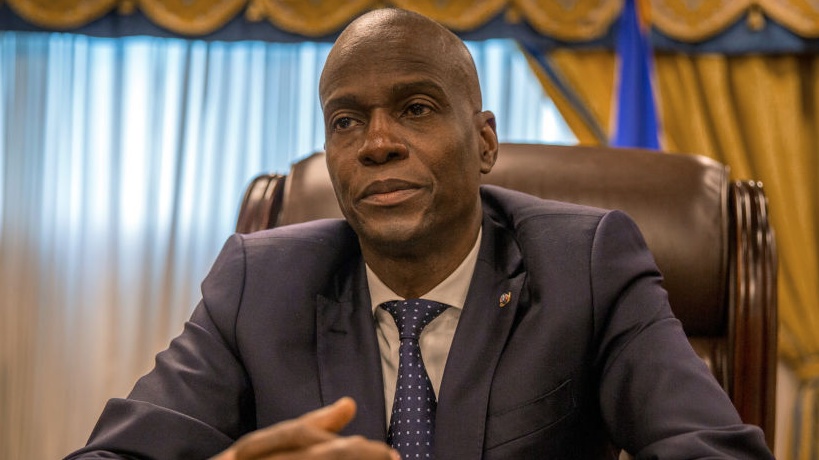Activists and political officials have demanded President of Haiti Jovenel Moïse honor the practice of democracy and vacate his post as his five-year term ended on Sunday.
Moïse, who has led the country by presidential decree since last year, contends that an interim government held power during the first year of his term and that he’s not leaving office until next year, according to The New York Times.
“I am not a dictator,” Moïse said. “My term ends Feb. 7, 2022.”
In exercising the decree at the beginning of last year, Moïse suspended two-thirds of the Senate, the entire lower Chamber of Deputies and each of the country’s mayors. Over the last four years, he has refused to hold elections and just 11 elected officials hold office in Haiti, The New York Times reported.
Although his predecessors Rene Preval, and most recently, Michel Martelly, served portions of their terms under a presidential decree, Moïse said he was “reluctantly” using his power in a “window of opportunity” to change things.
In January 2020, he said that he wanted to expand the powers of the president to cease a “decades-long cycle of political crises” and instability, Reuters reported. Moïse called for a unification of government bodies to address “flaws” in the country's constitution.
This April, a vote will be held on a referendum on Haiti's constitution. However, Moïse’s opponents are concerned that the vote will not be fair and may lead to him building more authoritative power. Although many Haitian political pundits agree that change is necessary to improve the lives of its residents, many critics argue that Moïse may not be the leader to oversee such change.
“It is illusory to believe a president who is rejected by the people could change the constitution,” Andre Michel, an opposing Democratic politician, said.
Haiti's judicial system ruled over the weekend that Moïse’s term ended Sunday, according to The New York Times.
Last week, the U.S. government had supported Moïse’s argument that his term ends next year, adding it’s critical following his term that a newly elected president should succeed him in office, per The New York Times.
“The Haitian people deserve the opportunity to elect their leaders and restore Haiti’s democratic institutions,” State Department Representative Ned Price said.
In December, the United States Treasury Department levied sanctions against allies close to Moïse for providing protection and weapons to gangs that targeted people opposing Moïse. In a press release, the agency said, “these gangs, with the support of some Haitian politicians, repress political dissent in Port-au-Prince neighborhoods known to participate in anti-government demonstrations.”
The sanctions were centered around a near week-long attack last May where gangs harassed and attacked people living in Port-au-Prince. Officials with the U.S. Treasury Department said gang members killed approximately 71 people, destroyed over 400 homes and raped at least seven women.
On Sunday, Moïse defended his claim as the legitimate president and his administration announced the arrest of nearly 20 people accused of being involved in a coup plot to kill the president. The detainees, who include a Supreme Court judge and a police general inspector, argue that the charges against them have been exaggerated, according to The New York Times.
As the weekend wrapped up, violent clashes broke out between police and protesters in several Haitian cities. Many residents have expressed doubt about things improving given that the government hasn’t been able to protect or adequately resource its people in the direst of times.
“The regime has delegated power to the bandits,” Pierre Espérance, a human rights activist, told The New York Times.
“The country is now gangsterized — what we are living is worse than during the [Jean-Claude Duvalier] dictatorship,” he said,
Craftsman Marvens Pierre, 28, said he’s had to send his two younger children to live with his mother due to the current economic climate and public security threats, News Chant reported.
“Things have gotten more and more difficult since the arrival of Jovenel Moïse,” he said.
The New York Times reported that the Haitian government has denied providing resources or protection to any gangs.
